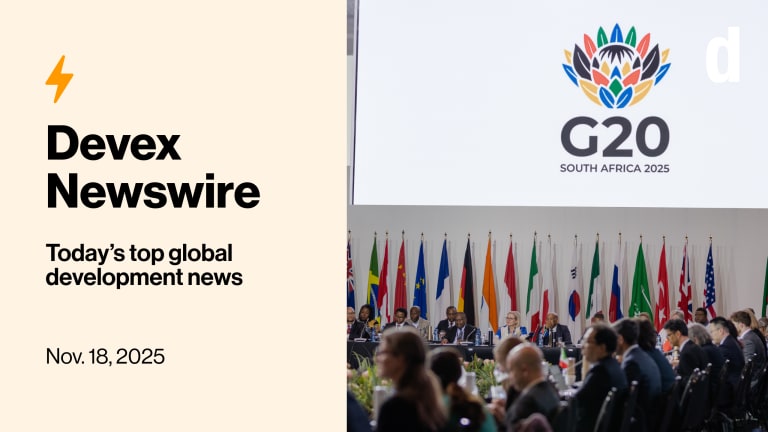Barbados Prime Minister Mia Mottley is “quietly confident” that her proposals to reform the international financial system to better serve crisis-affected lower-income countries will be adopted, and suggested to Devex that her agenda may have backing from one of the Group of Seven leading industrial nations.
The reforms, known as the Bridgetown Agenda after the capital of Barbados, are “resonating with a number of people,” Mottley told Devex Monday on the sidelines of the 27th United Nations Climate Change Conference in Sharm el-Sheikh, Egypt.
“It’s pleasing, but I think it resonates because what we’ve done is take the experiences of people, and put them in one place, and to say look, if this international financial system is going to work for us, we need reform, and these are the areas we see the reform,” Mottley said.









